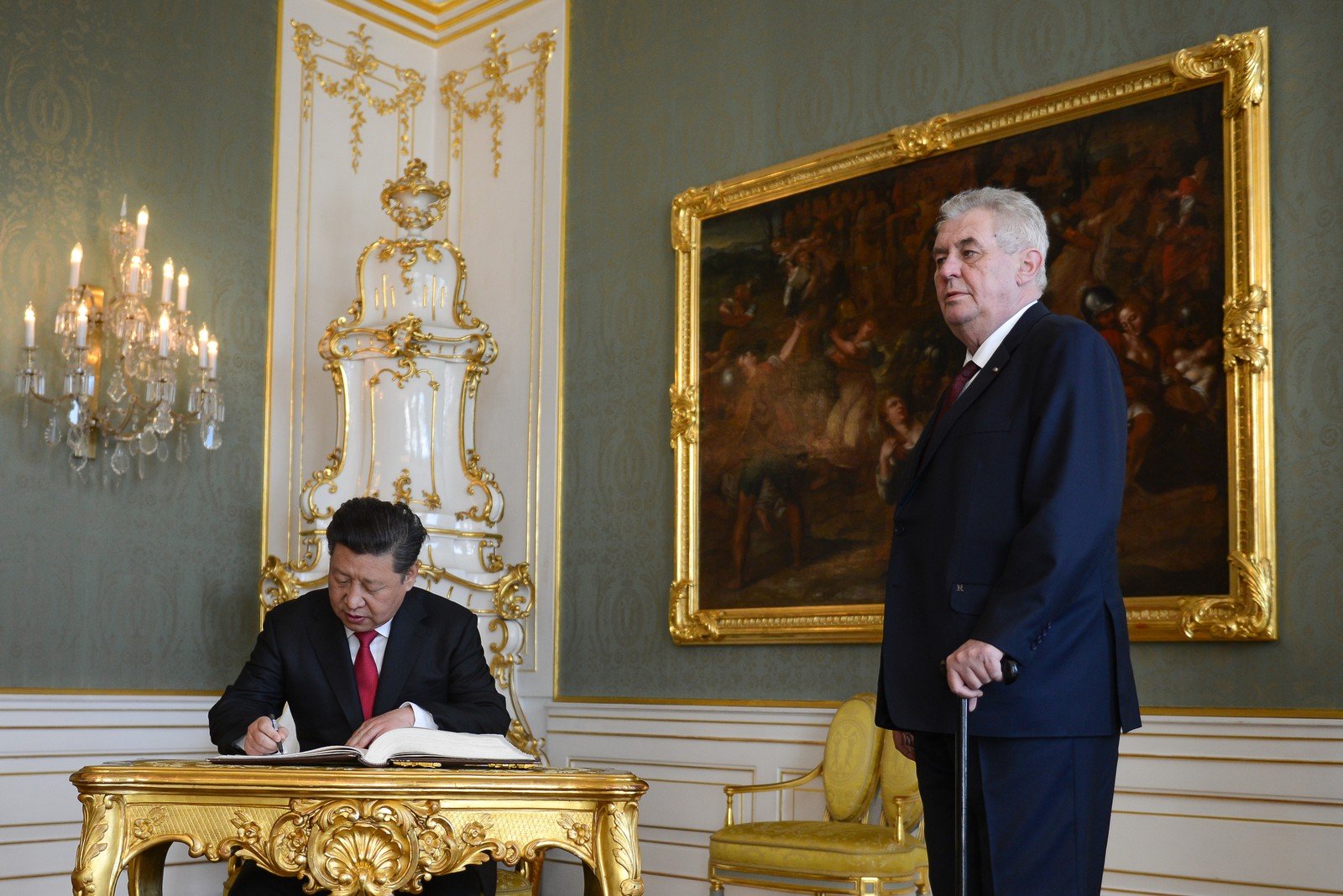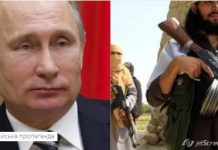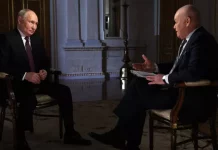
The Czech domestic intelligence agency, the Security Information Service (BIS), has just published its 2015 Annual Report.
Besides terrorism and other threats, it provides more detailed insight into its counterintelligence activities than previously. And, as in past years, so too in 2015, it says that “Chinese and Russian intelligence services were the most active in the Czech Republic”.
The surge in Chinese economic activity is being supported by the Czech government and by president Milos Zeman, but it comes with a sting in the tail.
“Chinese diplomatic, intelligence and economic entities focused on drawing on their success from 2014 … [and] actively worked on extending and maintaining Chinese influence in Czech politics and economy”, the BIS report said.
The elephant, or bear, in the room is, however, Russia.
“Russian intelligence services were the most active foreign intelligence services in the Czech Republic [in 2015]”, BIS said.
By contrast, “BIS did not identify any significant activities of intelligence services of other former Soviet Union countries or of partner intelligence services”.
One focal point is Russia’s diplomatic mission in Prague. It has 140 accredited diplomats, compared to some 70 US and 30 Chinese diplomats.
But, according to BIS, “a large number of Russian intelligence officers were active under diplomatic cover of the Russian embassy”.
“Intelligence officers under diplomatic cover were active also at the embassies of other states; however, the number of Russian intelligence officials was much higher. Unlike intelligence officials of partner states, Russian (and some other) intelligence officers did not declare their status to the BIS”, it added.
“Such clandestine behaviour, concealing the affiliation to an intelligence service, clearly signals activities threatening the security and other interests of the Czech Republic”.
The problem also exists elsewhere in the EU.
The Swedish intelligence agency, Sapo, estimates that one third of the 35 or so Russian diplomats accredited in Stockholm are intelligence officers.
Russian objectives
But the new BIS report goes further than ever in shedding light on the Kremlin’s objectives in the country.
It said that, last year, Russia concentrated on “information operations” with six goals.
The first was “weakening the strength of Czech media” (covert infiltration of Czech media and the internet, massive production of Russian propaganda and disinformation controlled by the state).
It aimed “strengthening the information resistance of the Russian audience (prefabricated disinformation from Czech sources for the Russian audience)”.
It also aimed at “exerting influence on the perceptions and thoughts of the Czech audience, weakening society’s will for resistance or confrontation (information and disinformation overload of the audience, relativisation of truth and objectivity, promoting the motto ‘everyone is lying’)”.
The fourth objective was “creating or promoting inter-societal and inter-political tensions in the Czech Republic (foundation of puppet organisations, covert and open support of populist or extremist subjects)”.
The next one was “disrupting the coherence and readiness of Nato and the EU (attempts to disrupt Czech-Polish relations, disinformation and alarming rumours defaming the US and Nato, disinformation creating a virtual threat of a war with Russia)”.
The final objective was “damaging the reputation of Ukraine and isolating the country internationally (involving Czech citizens and organisations in influence operations covertly led in Ukraine or against it by Russia)”.
The BIS also warned that, while Russia’s current operations centre around the Ukraine and Syria conflicts, “the infrastructure created for achieving these goals” is now a permanent feature in Czech life.
It said boldly that “these activities pose a threat to the Czech Republic, EU and Nato” and that the “infrastructure” can be “used to destabilise or manipulate Czech society or its political environment at any time, if Russia wishes to do so”.
Three takeaways
There are three main takeaways from the findings.
To begin with, there is an apparent shift towards public exposure of foreign hostile activities. In part, this is because the threat is bigger than before, but it is also due to the personal approach of the new BIS director, who was appointed just two weeks ago.
The director has led BIS counter-intelligence operations for a decade, and has worked in the Czech services since the early 1990s.
His new approach is still far from that of his colleagues in the Baltic states, who publish detailed evidence and even name individuals who pose a threat.
But it is a welcome trend, given that surveys indicate that one in four Czech people now no longer trust their government or independent media and that the Czech president’s chancellery has been deeply infiltrated by the Kremlin.
Next, the public warning of the Russian threat to Czech stability seems designed to put pressure on Czech decision-makers to take counter-measures.
Finally, the BIS findings suggest that Russia’s current activities are just the starting line for future operations.
In January 2018, the Czech Republic will hold a presidential election.
Zeman, the Kremlin’s trojan horse, will seek a second term. He is already popular and he can play a useful geopolitical role for Moscow in the central European region.
One can reasonably assume that the Kremlin will use its Czech infrastructure to do whatever it takes – including harsh intimidation and black propaganda – to keep its ally in Prague castle.
By Jakub Janda, EUObserver
Jakub Janda is deputy director of European Values, a Czech think tank, where he also runs the Kremlin Watch Programme





